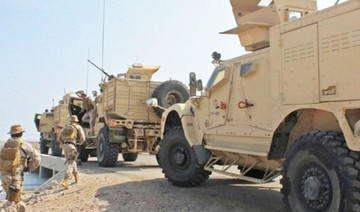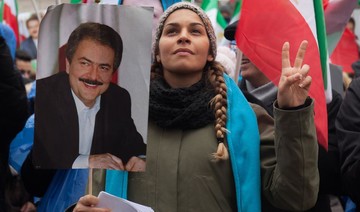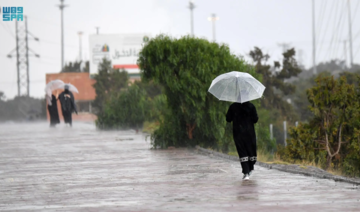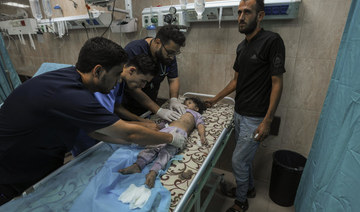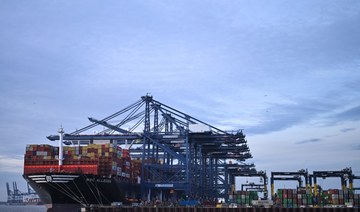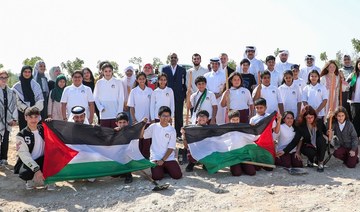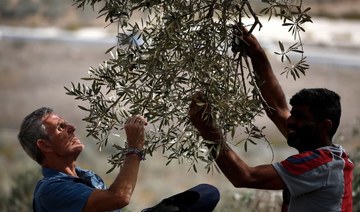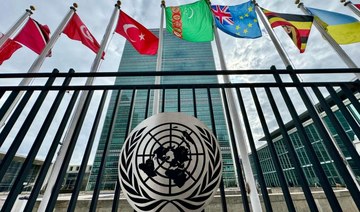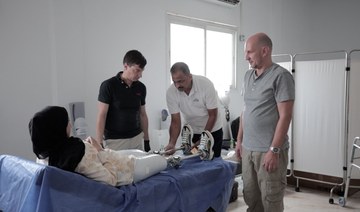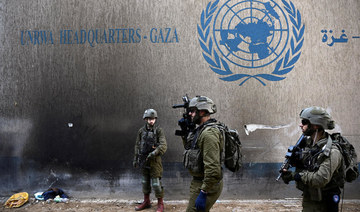DUBAI: Inspired in part by Iran’s Islamic Revolution, a young Egyptian army lieutenant emptied his machine gun into President Anwar Sadat in 1981, killing a leader who made peace with Israel and offered the shah a refuge after his overthrow.
The assassination carried out by Khalid Al-Islambouli and others from a Sunni Islamic extremist group showed the power of Iran’s Shiite-led revolution across the religious divides of the Muslim world.
Islamists initially saw Iran’s revolution as the start of an effort to push out the strongman Arab nationalism that had taken hold across the Middle East.
But those divisions now feel inflamed by the sectarian bloodshed that followed the US invasion of Iraq in 2003, Syria’s long civil war and the regional rivalry between Iran and Saudi Arabia.
It may seem as though the Middle East has always been divided between Sunni Islam, which represents about 85 percent of the world’s more than 1.8 billion Muslims, and Shiite Islam. But that divide, stemming from a disagreement centuries ago over who should succeed the Prophet Muhammad, owes much to the political rivalry between Saudi Arabia and Iran after 1979.
Long before the Islamic Revolution, Islamists had wanted to wed governments to their faith. One of the most prominent was the Muslim Brotherhood, a Sunni group founded in 1928 in Egypt that spread across the Arab world. Another was the Iranian Shiite Islamist group “Devotees of Islam,” who assassinated pro-Western Prime Minister Ali Razmara in 1951.
The aftermath of World War II instead saw the rise of pan-Arab nationalists, chief among them Egypt’s Gamal Abdel Nasser. Military strongmen took power, pushing for rapid modernization that shunted religion aside.
The nationalists “see themselves often as critical of religion because religion is ‘backward.’ It’s what’s been holding the Arab world back,” said Daniel Byman, a senior fellow at the Brookings Institution and a professor at Georgetown University. “That’s kind of the dominant divide, and Islamists of all stripes are pushing back against this.”
Ayatollah Ruhollah Khomeini, who returned to Iran from exile after the departure of Shah Mohammad Reza Pahlavi, made a point to keep Shiite ideas out of speeches.
“The Iranian revolution in the beginning was portraying itself as the start of a pan-Islamic revolution,” said Toby Matthiesen, a senior researcher at St. Anthony’s College at the University of Oxford who is writing a book on Sunni-Shiite relations. “It was even seen like that by a lot of the Sunni Islamic movements.”
Khomeini also made a point to embrace the Palestinians in their fight against Israel. Yasser Arafat, the leader of the overwhelmingly Sunni Palestinians, returned the favor by becoming the first leader to visit Khomeini.
“The Iranian revolution gave us a strong belief that the tyrants can be brought down,” said Ahmed Yousef, one of the founders of Hamas, the Palestinian Islamic political party and armed wing that has controlled the Gaza Strip since 2007 with Iran’s backing. “Following that big victory, the Islamic Jihad was established here in Palestine and few years later Hamas was founded too.”
The pan-Islamic Iranian inspiration perhaps reached its height on Oct. 6, 1981, as Islambouli and his co-conspirators rushed out of a truck at a Cairo military parade and assassinated Sadat, who had made history by signing the first Arab peace deal with Israel. At trial, Islambouli famously clutched a Qur’an and shouted: “It was I who killed the Pharaoh!” Iran venerated Islambouli, naming a street in Tehran after him and issuing a postage stamp in his honor.
But by this time, Saudi Arabia, fearful of Iran’s growing influence and the 1979 extremist attack on the Grand Mosque at Makkah, began pumping money into spreading its ultraconservative view of Sunni Islam throughout the world and dismissing Shiites as apostates.
“The Saudis really put a lot of money into the ‘Dawah’ machine to try to out-compete Iran around the world,” Byman said, referring to the kingdom’s proselytizing efforts. “There’s a real panic and concern then.”
Pan-Islamic admiration for Iran waned as it supported destabilizing attacks across the region, such as a failed 1981 militant coup in Bahrain and a 1985 car bombing targeting the emir of Kuwait. Iran’s eight-year war with Iraq deepened that rift.
Iran at the same time found perhaps its greatest success in helping create the Shiite militant group Hezbollah in Lebanon, which still holds sway over much of the country decades later as both an armed group and a political party. In October 1983, a bombing at the US Marine barracks in Beirut killed 231 American troops — the bloodiest day for the armed forces since World War II — and a US federal judge blamed Hezbollah and Iran for the attack. Iran has long denied any involvement.
Sectarianism exploded in the region with the US invasion of Iraq in 2003. Iran backed Shiite militants implicated in deadly roadside bomb attacks against US forces and sectarian assaults on Sunnis. Sunni extremists repeatedly targeted Shiite civilians, and when the Daesh group rampaged across Syria and Iraq in 2014 it massacred Shiites and other minorities. Iran intervened again, reactivating the militias to help Iraqi forces eventually defeat the extremist group.
Syria’s civil war further fueled the split, as Iran and Hezbollah provided crucial military aid to President Bashar Assad, who comes from the Alawite religious minority, while Sunni Gulf countries and Turkey supported the mainly Sunni opposition.
And yet even today, the role of the Iranian revolution in stoking Sunni militancy cannot be ignored.
“The Iranian revolution played a significant role in the birth and the growth of the jihadist movements in the Arab World, as it raised the awareness of the role of religion in political change in the region,” said Adnan Milhem, a Palestinian historian at Al-Najah University. “The Iranian revolution affected the political thinking in the region in terms of introducing religion as a changing tool to fight oppression and corruption.”
Iran’s Islamic Revolution inspired, divided militants
Iran’s Islamic Revolution inspired, divided militants
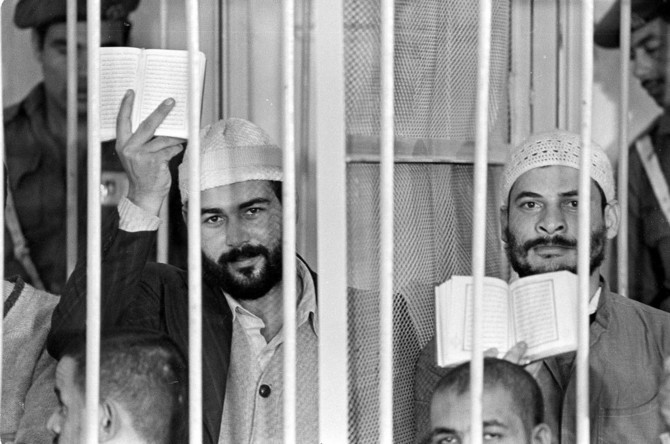
- Inspired in part by Iran’s Islamic Revolution, a young Egyptian army lieutenant emptied his machine gun into President Anwar Sadat in 1981
- Islamists initially saw Iran’s revolution as the start of an effort to push out the strongman Arab nationalism that had taken hold across the Middle East
Jordan welcomes UK delegation to introduce weather forecasting project
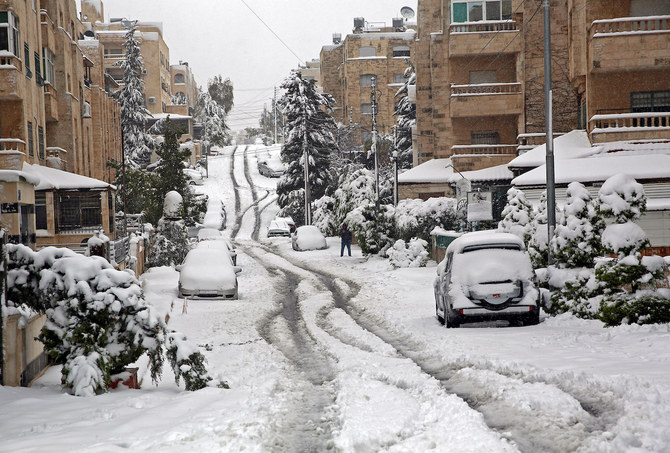
- Project aims to provide meteorological data and early warnings to refugee-hosting communities
AMMAN: Jordanian Transport Minister Wesam Altahtamouni welcomed a delegation from the British Embassy in Amman and the British Meteorological Office on Monday.
The meeting came as part of the UK Foreign Ministry’s efforts to implement the Jahez project, which aims to provide meteorological data and early warnings to refugee-hosting communities, Jordan News Agency reported.
Jahez, which will span three to five years, aims to develop proactive plans and long-term strategies, enhance monitoring and forecasting systems, and implement resilience-building measures to mitigate the effects of climate change.
The collaboration will involve Jordan’s ministries of transport, environment, planning, water and irrigation, as well as relevant municipalities.
Helen Ticehurst from the British Meteorological Office explained the British Meteorological Office’s operations and the objectives of Jahez.
The project also focuses on climate finance for countries hosting refugees.
Altahtamouni praised the British delegation for its willingness to provide technical assistance, leveraging the expertise of the British Meteorological Office in proactive weather forecasting and climate change adaptation.
Djibouti FM to stand at African Union Commission elections
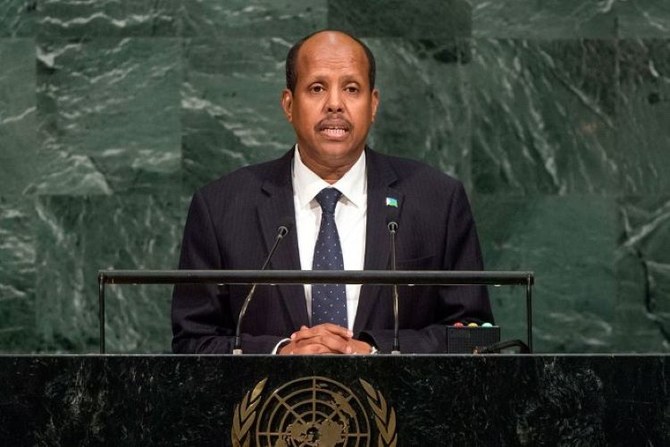
- Mahamoud Ali Youssouf calls for resolution of conflicts in Sudan, Gulf of Aden and Gaza
- Mahamoud Ali Youssouf: The only thing we know for sure today is that the next president will come from an East African country
RIYADH: Mahamoud Ali Youssouf, the minister of foreign affairs and international cooperation of the Republic of Djibouti, intends to stand for election to the African Union Commission.
The commission is based in Addis Ababa, Ethiopia. Its main functions are to represent the AU and defend its interests under the authority and mandate of the assembly and executive council.
The minister said that the main objectives of the commission are to promote integration, economic and social development, peace, security and human rights on the continent. It also aims to strengthen continental and international cooperation.
Tradition dictates that the president of the commission should be elected for a renewable four-year term, and should obviously be African, especially as the next session will be chaired by the East African Community, which includes Djibouti among its members.
The diplomat believes that winning these elections will contribute greatly to strengthening integration between the countries of the continent, as well as to reinforcing African relations with various other geographical groups, given the international and regional acceptance and respect enjoyed by Djibouti thanks to its balanced foreign policy.
Youssouf said he had been encouraged to stand as a candidate in the forthcoming elections by the respect and diplomatic appreciation that Djibouti possesses, highlighting also his long personal experience in the diplomatic field as an ambassador and then as minister of foreign affairs and international cooperation since 2005, and his in-depth knowledge of the work of the AU.
He said that a good knowledge of continental affairs is essential to occupy such an important position, adding that such an organization needs experienced leaders and diplomats to effectively promote continental and international cooperation given the continent’s current circumstances.
“The only thing we know for sure today is that the next president will come from an East African country. It will then be up to the member states to decide on the day of the vote,” he said.
Youssouf said that if elected, he will focus, in the interests of the African people, on three important areas: strengthening cooperation and economic integration between the countries of the continent; developing continental and international cooperation; and cooperation with international and regional organizations such as the UN, the Organization of Islamic Cooperation and the Arab League.
In early January, the Somaliland region signed an agreement with Ethiopia granting it a maritime opening to the Gulf of Aden. This treaty led to a political crisis between Ethiopia and neighboring Somalia, which promptly cancelled the memorandum, calling it illegal.
Youssouf said Djibouti currently chairs the Intergovernmental Authority on Development, and that Somalia and Ethiopia are members, along with other countries in the region, which gives it an additional responsibility in mediating between the two. He said that settlement efforts are continuing with Djibouti and Kenya mediating, with hopes that the two parties will reach an agreement soon.
He added that Djibouti, through its current presidency of IGAD, is very interested in seeing diplomatic relations between Somalia and Ethiopia return to what they were before the signing of the MoU.
Youssouf maintains that other crises in the world have distracted attention from Africa’s bloodiest conflict in Sudan, calling it the most forgotten crisis, especially when it comes to refugees and population displacement. He said that over 6.5 million Sudanese have been forced to leave their homes, with over a third of them displaced outside the country, and that the proliferation of ethnically-based militias in the current conflict is equally alarming.
As Sudan is a founding member of IGAD, he said Djibouti is making intense and continuous efforts in coordination with the other member states and the international community, notably the US and Saudi Arabia, to find a solution to the ongoing conflict in this brotherly country.
He also revealed that his country had already received representatives of the parties responsible for the crisis in Sudan to listen to their points of view and their vision for a solution. It should be noted that all have affirmed their desire to put an end to the war, and hope that these efforts will lead to a permanent and unconditional ceasefire, Youssouf said.
Recently, attacks on ships in the Red Sea have intensified, targeting vessels and disrupting this most important maritime passage. Youssouf said Djibouti is following these developments with great concern, specifying that the Bab Al-Mandeb Strait, overlooked by Djibouti, is considered an international passage of extreme importance from a political and economic point of view.
He confirmed that any breach of security in this area has global repercussions, given its role as a vital artery for international trade, and called for solutions to be found to the various crises in the region, so that everyone can enjoy peace and security.
With regard to the war on Gaza, Youssouf urged the international community to assume its responsibilities and put an end to the Israeli campaign which has cost the lives of over 34,000 people, as well as the resulting displacement and famine threatening the lives of millions of children.
Jordan nominates ancient Mehras olive trees for UNESCO Intangible Cultural Heritage list
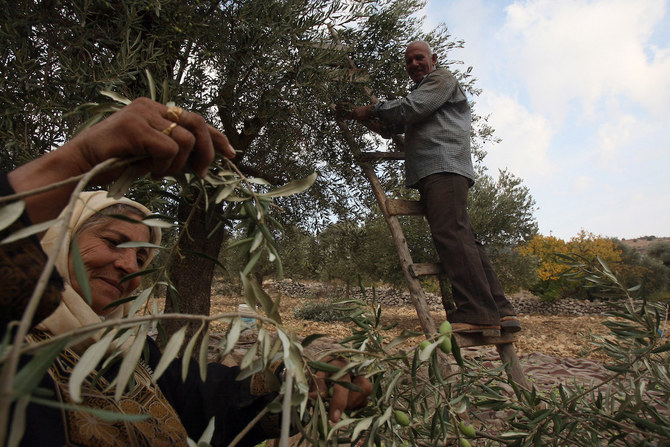
- Culture minister underscored the profound importance of the olive tree in Jordanian society
AMMAN: Jordan has nominated its Mehras olive trees for inclusion on UNESCO’s representative list of Intangible Cultural Heritage for the year 2025, Jordan News Agency reported on Monday.
According to the Food and Agricultural Organization, Jordan has some of the world’s most ancient habitats for olive trees.
Olive trees cover approximately 30 percent of all cultivated land in Jordan, constituting 75 percent of fruit trees. The olive trees hold immense significance for Jordan’s economy, environment, and culture.
Jordanian Culture Minister Haifa Najjar highlighted the importance of the tree to Jordanian heritage, drawing attention to its regional and international significance.
The minister underscored the profound importance of the olive tree in Jordanian society, representing both agricultural prowess and the cultural heritage deeply ingrained in the lives of its people.
She commended the collaborative efforts between the Ministry of Culture and national stakeholders in finalizing the nomination dossier for “The Ancient Olive Tree — Al-Mehras” to be presented to UNESCO in Paris.
Najjar noted the ministry’s commitment to documenting and safeguarding elements of intangible cultural heritage and the positive effect of such nominations on Jordan’s cultural presence globally.
The ministry previously secured UNESCO recognition for Jordanian cultural elements such as As-Samer traditional dance and mansaf, a traditional dish.
The ministry has participated in joint Arab nominations to UNESCO, highlighting the interconnectedness of cultural practices across the region. Previous submissions included files on date palm cultivation and Arabic calligraphy.
Looking ahead, Najjar mentioned joint Arab nominations currently under consideration for the 2025 UNESCO list. These encompass an array of practices and traditions, including mud architecture, traditional attire for men, musical instruments such as the oud, and various crafts and skills associated with Arab cultural heritage.
Dubai launches major AI economic strategy
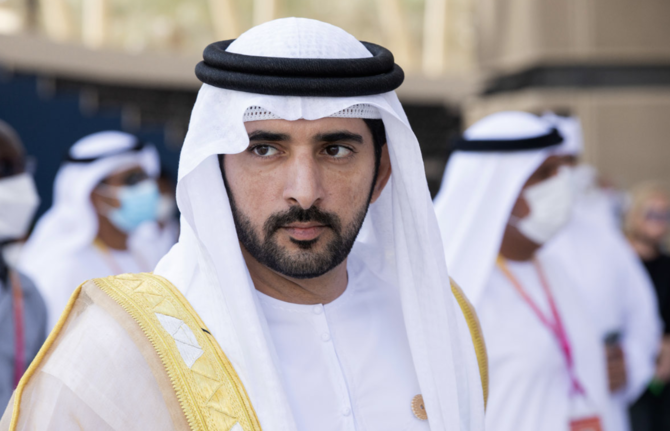
- Crown prince said initial phase of plan, by leveraging AI, would enhance quality of life and well-being for Dubai residents
RIYADH: Dubai’s crown prince on Monday launched a major artificial intelligence drive across government, business and education in the emirate.
The Dubai Universal Blueprint for Artificial Intelligence aims to achieve the Dubai Economic Agenda D33 — to double the size of the economy by 2033 — by adding AED100 billion ($27 billion) from digital transformation and increasing economic productivity by 50 percent.
The strategy includes appointing chief Al officers in government entities, the launch of a Dubai AI and Web3 campus, the launch of AI weeks at the emirate’s schools, a plan to attract data centers and the launch of a trade license for AI.
Sheikh Hamdan bin Mohammed Al-Maktoum said that the initial phase of the plan, by leveraging AI, would enhance quality of life and well-being for Dubai residents.
“Dedicated incubators and campuses for artificial intelligence will be launched to further enhance Dubai’s vibrant AI ecosystem, and finally AI will be celebrated in Dubai schools with the introduction of an AI week,” he said on X.
“We will annually review, update and introduce new projects under this plan, ensuring it keeps pace with all developments. Dubai is a city centered around its people, and to this end, we will dedicate all our resources and energy to make it the happiest place in the world.”
The crown prince said: “In 1999, his highness Sheikh Mohammed bin Rashid Al-Maktoum initiated the pioneering journey of the future by launching Dubai’s digital transformation, a venture that has continued to achieve milestones, leading to the recent unveiling of the Dubai Digital Strategy last year.
“We have realized record-breaking accomplishments that have established us as the premier hub for billion-dollar global enterprises in the technology and artificial intelligence sectors within the region,” he added.
Sheikh Hamdan said that the evolution of AI is presenting opportunities for nations and governments, but posing challenges to those unable to keep pace.
For Dubai, this requires a “swift and adaptive action plan,” responding to the “rapid changes in technology and AI,” he added.
UAE clothing brand ‘The Giving Movement’ donates over $800,000 to Gaza
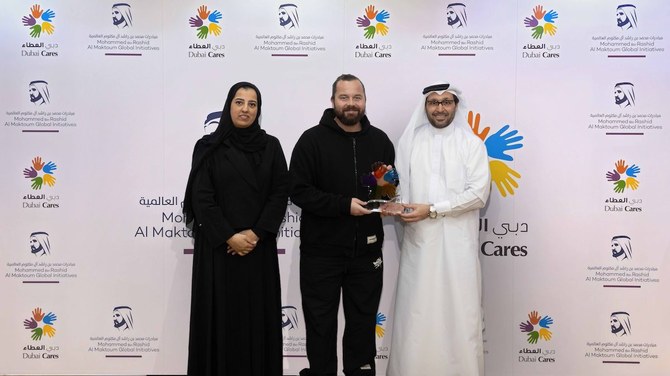
- Donations earmarked for hot meals, food packages, and the provision of emergency shelter
DUBAI: A UAE-based sustainable clothing brand said on Monday that it had contributed more than AED 3 million ($816,798) in emergency relief aid for Gaza since the beginning of Israel’s war on the Palestinian enclave.
All proceeds donated to Dubai Cares charity by The Giving Movement were earmarked for the delivery of crucial support to Palestinians in Gaza, including hot meals, food packages, and the provision of emergency shelter.
The brand raised the money through the “Gaza In Our Hearts” fundraising campaign.
Dubai Cares has forged a partnership with American Near East Refugee Aid, a nongovernmental organisation, collaborating closely with UN agencies, diplomatic channels, and other NGOs to establish aid channels for swift and effective delivery of life-saving supplies.
Dr. Tariq Al-Gurg, CEO of Dubai Cares, commended the clothing brand for its philanthropic efforts.
“The Giving Movement has truly embodied its brand name and set an example for other brands to make a positive impact on the lives of those who urgently need our assistance,” he said.
Dominic Nowell-Barnes, founder of The Giving Movement, said: “Our collaboration with Dubai Cares underscores our commitment to standing with the community and providing assistance to those in need.


